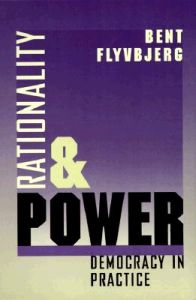Organizational learning is the process of creating, retaining, and transferring knowledge within an organization. An organization improves over time as it gains experience. From this experience, it is able to create knowledge. This knowledge is broad, covering any topic that could better an organization. Examples may include ways to increase production efficiency or to develop beneficial investor relations. Knowledge is created at four different units: individual, group, organizational, and inter organizational.
Cross-cultural communication is a field of study that looks at how people from differing cultural backgrounds communicate, in similar and different ways among themselves, and how they endeavor to communicate across cultures. Intercultural communication is a related field of study.

Knowledge transfer refers to sharing or disseminating of knowledge and providing inputs to problem solving. In organizational theory, knowledge transfer is the practical problem of transferring knowledge from one part of the organization to another. Like knowledge management, knowledge transfer seeks to organize, create, capture or distribute knowledge and ensure its availability for future users. It is considered to be more than just a communication problem. If it were merely that, then a memorandum, an e-mail or a meeting would accomplish the knowledge transfer. Knowledge transfer is more complex because:
The reputation of a social entity is an opinion about that entity typically as a result of social evaluation on a set of criteria, such as behaviour or performance.
Impression management is a conscious or subconscious process in which people attempt to influence the perceptions of other people about a person, object or event by regulating and controlling information in social interaction. It was first conceptualized by Erving Goffman in 1959 in The Presentation of Self in Everyday Life, and then was expanded upon in 1967.
A virtual team usually refers to a group of individuals who work together from different geographic locations and rely on communication technology such as email, instant messaging, and video or voice conferencing services in order to collaborate. The term can also refer to groups or teams that work together asynchronously or across organizational levels. Powell, Piccoli and Ives (2004) define virtual teams as "groups of geographically, organizationally and/or time dispersed workers brought together by information and telecommunication technologies to accomplish one or more organizational tasks." As documented by Gibson (2020), virtual teams grew in importance and number during 2000-2020, particularly in light of the 2020 Covid-19 pandemic which forced many workers to collaborate remotely with each other as they worked from home.
Organizational behavior (OB) or organisational behaviour is the: "study of human behavior in organizational settings, the interface between human behavior and the organization, and the organization itself". OB research can be categorized in at least three ways:
Organization studies is the inter-disciplinary academic field interested in a collective activity, and how it relates to organization, organizing, and management. It has followed numerous 'turns' since its emergence in the 1960s: linguistic turn, spatial turn, practice turn, process turn, materiality turn, communication turn... A turn is a collective direction of research, focused on some coherent sets of concepts, theories, and ideas, which represent a point of bifurcation for the field itself. Most turns in organization studies relate to broader ones in social sciences and humanities. Researchers studying organizations and/or organizing processes have a recurring concern that those who work in organizations do not find organizational research particularly relevant. There is therefore growing interest in the impact of organization studies. Public administrations also, around the world, are adopting massively new organizational models to increase their efficiency and improve public services. The Organization Studies field is becoming more popular also because the borders between a well-defined organization and customers, citizens, businesses and professionals are more and more undefined.
Ethnoecology is the scientific study of how different groups of people living in different locations understand the ecosystems around them, and their relationships with surrounding environments.
The life course approach, also known as the life course perspective or life course theory, refers to an approach developed in the 1960s for analyzing people's lives within structural, social, and cultural contexts. The origins of this approach can be traced back to pioneering studies of the 1920s such as William I. Thomas and Florian Znaniecki's The Polish Peasant in Europe and America and Karl Mannheim's essay on the "Problem of Generations".

Rationality and Power: Democracy in Practice is a 1998 book by Bent Flyvbjerg, published by the University of Chicago Press. The book focuses on "the application of critical theory to urban and community development". Flyvbjerg here deploys the methodology for doing social science, which he developed in Making Social Science Matter (2001). Upon publication, the International Journal of Urban and Regional Research called Rationality and Power, "a notable addition to the literature," the reviewer adding, "I cannot think of a better account of how power relations are embodied in local governance."
Greenberg (1987) introduced the concept of organizational justice with regard to how an employee judges the behavior of the organization and the employee's resulting attitude and behaviour. For example, if a firm makes redundant half of the workers, an employee may feel a sense of injustice with a resulting change in attitude and a drop in productivity.
Institutional logic is a core concept in sociological theory and organizational studies, with growing interest in marketing theory. It focuses on how broader belief systems shape the cognition and behavior of actors.
In the social sciences, coordinated management of meaning (CMM) provides an understanding of how individuals create, coordinate and manage meanings in their process of communication. Generally, it refers to "how individuals establish rules for creating and interpreting the meaning and how those rules are enmeshed in a conversation where meaning is constantly being coordinated". "Human communication is viewed as a flexible, open and mutable process evolving in an ongoing joint interaction, which enables movement, shifts and evolving ways with each other". CMM embodies this vision and allows interpersonal connection and open conversation among individuals or groups, and can be applicable across multiple academic fields and social scenarios.

Customer experience (CX) is a totality of cognitive, affective, sensory, and behavioral consumer responses during all stages of the consumption process including pre-purchase, consumption, and post-purchase stages. Pine and Gilmore described the experience economy as the next level after commodities, goods, and services with memorable events as the final business product. Four realms of experience include esthetic, escapist, entertainment, and educational components.
Training and development involve improving the effectiveness of organizations and the individuals and teams within them. Training may be viewed as related to immediate changes in organizational effectiveness via organized instruction, while development is related to the progress of longer-term organizational and employee goals. While training and development technically have differing definitions, the two are oftentimes used interchangeably and/or together. Training and development have historically been topics within adult education and applied psychology but have within the last two decades become closely associated with human resources management, talent management, human resources development, instructional design, human factors, and knowledge management.
Technology scouting is an element of technology management in which
Cross-cultural psychology attempts to understand how individuals of different cultures interact with each other. Along these lines, cross-cultural leadership has developed as a way to understand leaders who work in the newly globalized market. Today's international organizations require leaders who can adjust to different environments quickly and work with partners and employees of other cultures. It cannot be assumed that a manager who is successful in one country will be successful in another.

How Institutions Think is a book that contains the published version of the Frank W. Abrams Lectures delivered by the influential cultural anthropologist Mary Douglas at Syracuse University in March 1985.

Climate communication or climate change communication is a field of environmental communication and science communication focused on the causes, nature and effects of anthropogenic climate change.




